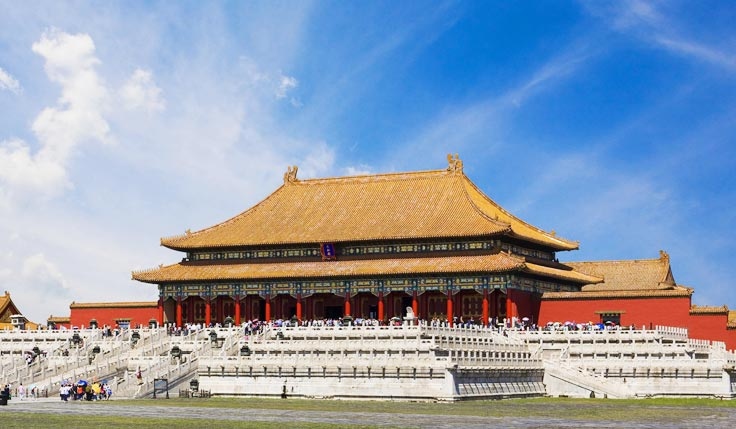20 Top Ways For Deciding On China Tour Websites
Wiki Article
Top 10 Tips On Bargaining Etiquette When Shopping In China
1. Start low, but be RespectfulTip You can offer 50-70 percent less than suggested price and then negotiate higher. Make sure to be firm, but courteous to demonstrate that you're serious.
Pro: Establishes your position without offending the seller.
Pros: Starting with the lowest price can be frustrating for sellers, especially when selling items with fewer margins.
2. What is the market value?
Find out the average price for the item you want to purchase.
Pro: Provides you with security and helps prevent scams.
Cons: Trying to find unique or handmade products can take a lot of time especially if they're not easily accessible.
3. Show Genuine Interest
Tip: If you feel that you're really interested in purchasing vendors are more likely to negotiate.
Pro: Establishes a relationship with the customer and increases their chances of obtaining an affordable price.
Arousal: Excessive enthusiasm can indicate a desire to pay higher prices which could weaken your argument.
4. The best way to walk Away is strategically
Tips: If you don't notice a price reduction then take your time and walk away. You could get a contact from the seller offering a higher offer.
Pro: A powerful strategy for obtaining the lowest possible cost.
Cons: This could be detrimental if the seller does not want to reduce the prices, particularly for items that are in high demand.
5. Learn Basic Mandarin Phrases
Tip: Phrases like "Tai gui le!" (Too expensive!) You can also (Too expensive!) say "Pianyi ba yidian" (Can you lower the cost?) It is important to put in the effort.
Pro: Makes the negotiation more personal and can soften the seller's stance.
Cons: Limited language may not help in more complicated negotiations.
6. Be Calm and Patient
Tips: Negotiations may require time. Do not appear stressed by keeping a cool demeanor.
Pro Sellers are more likely give buyers who are calm and persistent by offering them better deals.
Con: Time and effort are required, especially in crowded market.
7. Bring Cash
You may find that sellers are willing to cut the price when you pay cash instead of using digital methods.
Cash Offers: Small businesses typically accept cash offers to get discounts.
Con: Carrying cash in places that are crowded could be risky due to pickpockets.
8. Discounts on Group Bookings
Tip: Ask for bulk discounts when purchasing multiple products.
Pro: You can boost your bargaining skills and score a better deal.
Pro: Purchases can be more expensive than you need and not always suit your needs.
9. Don't Be Afraid to Say No
Tips - Be polite and decline in the event that the seller is unwilling to agree to lower the price.
Pro: Reduces buyer's remorse and ensures you stay within your spending limit.
Cons: You might be missing out on a good you really desired.
10. Learn When to Not Bargain
Do not bargain in department stores or costly boutiques.
Pro: Helps maintain respect for culture and helps avoid embarrassment.
Limits to your negotiation options when you are in certain settings
Benefits of bargaining in China
Savings: You could save money by negotiating the cost.
Cultural Experience: Bargaining offers an opportunity to learn about local customs and traditions.
Personal Interaction Builds Connections with Local Sellers
Cons of Bargaining In China
It can be a long process, particularly for shoppers who aren't experienced.
Language Barriers: Communication could be difficult if you do not speak Mandarin.
Negotiating can be stressful.
By mastering these tips by implementing these tips, you'll be able to navigate Chinese markets confidently and will enjoy the art of haggling in your journey through Chinese culture! Have a look at the top discover the charm of this site for blog tips including chaotianmen dock%EF%BC%8C a major water transportation hub in chongqing, eating in fuzhou, chinese wood carving originated in neolithic period, chinese stone lion the common ornament in chinese traditional architecture, shopping in xi an, xishuangbanna, entertainment in beijing, shopping in kashgar, eating in guilin, shaoxing wine the best yellow wine in china and more.

Top 10 Tips For Seasonal Visits To The Temples Of Fame In China
1. Visit during the off-season (Autumn/Winter)Tip: Consider visiting popular temples in China in the off-season (autumn or winter) usually from November to February. This is when fewer tourists are present, and the weather is cooler.
Pro: A more peaceful experience, which is more peaceful and contemplative.
Cons: It could be more cold and uncomfortable to go to temples outdoors.
2. Be Prepared For Weather Extremes
The temperatures can be quite different throughout the seasons. Winter can be very cold, and summer temperatures can be extremely hot. Pack accordingly.
Pro: You will be prepared for any type of weather and comfortable during your stay.
Con The issue is that packing for extreme weather isn't always easy, especially when you're traveling light.
3. Visits in the spring and Summer for Vibrant Flora
Tip: Visit temples in the spring and summer months for gorgeous gardens, flowering flowers and lush landscapes around temples.
The beautiful scenery adds to the enjoyment of visiting temple grounds.
Con: Summers tend to be very hot, and it can be very crowded.
4. Take into consideration festivals and special events.
Tips: Plan your visit during traditional celebrations that are celebrated, like the Chinese New Year in January/February or the Mid-Autumn Festival in September. These festivals allow you to take part in rituals, ceremonies and be a part of the lively culture of the temple.
Pros: There are numerous temples that offer traditional and thrilling events. This is an excellent opportunity to discover a new tradition.
Con: Temples are usually extremely crowded. The cost of accommodation can also increase during festival times.
5. Avoid Peak Holiday Seasons
TIP Refrain from visiting during peak tourist seasons (e.g., Chinese New Year, Golden Week in October) during which temples may be overcrowded with both local and international tourists.
Pros: Less crowded, more peaceful visits. Spiritual experience.
Con: You might be missing out on special festivals when they are at their highest.
6. Check Temple Closures during Winter
It is important to find out which temples you are planning on visiting are open or closed in winter. This is especially important for those located in remoter areas or in remote regions. Make sure you check prior to visiting.
You can avoid unnecessary trips by planning your trip in advance.
Con: Many temples are either closed or reduced in hours for repairs. This can lead to disappointment.
7. Early Morning Visits to Summer
Be sure to arrive early in the day to avoid the midday heat. Many temples open at dawn, and at this time is peaceful with fewer visitors.
A more peaceful and cool experience, with no crowds.
Con: It requires an early morning, which may not be suitable for all.
8. Make sure you are prepared for rain in the summer months.
Tipp A word of caution: Rainy days are commonplace in the summer months, especially in the southern region of China. If visiting during this season take an umbrella and rain gear to ensure you are comfortable.
Pros: The temple is still beautiful even if it's raining.
Con: Rain can interfere with outdoor activities, and can make temples slippery.
9. Visit the Mountain Temples in Autumn
The autumn foliage and the pleasant weather make it a great time to visit temples in the mountains (e.g. Mount Wutai, Mount Emei).
Pro It is that the cool temperatures allow to enjoy more comfort while going for a hike or just exploring the outdoors, and you can enjoy stunning views.
Con: The popular mountain shrines continue to draw large crowds at weekends and during holidays.
10. Examine the Lunar Calendar in Specific Cases
TIP: Many temples, specifically in China, follow the lunar calendar. This means that specific rituals and ceremonies are lunar in nature. For events such as Buddha's Birthday or the Lantern Festival in China, you must check out the lunar calendar.
Pro: Unique cultural experience, and greater insight into the local practices of spirituality.
Con: It may take more time to study and plan on the lunar calendar and the timing of events might not coincide with the dates of your travel.
The benefits of seasonal visits to Chinese Temples
Less crowds during off-season visits are a quiet and reflective experience.
Cultural Festivals: These events can provide a deeper understanding of the local culture and religion.
Beautiful scenery: A visit either in the spring or autumn months provide stunning landscapes with vibrant gardens that surround temples.
Get ready for cooler temperatures in the fall and winter months to visit temples.
Pros and Cons of Seasonal Chinese Temples Visits
Unpredictable weather: Winter can be very cold, and the summer too hot. This can affect your comfort.
Temple Closures: Some temples might be closed for a limited time or closed during the off-season or during extreme weather conditions.
Afraid of Crowds at Festivals: Popular festivals and holidays can bring large crowds, making it harder to fully experience the temple's peaceful atmosphere.
Limited Activities - Some events and ceremonies are only in certain seasons.
You can make your visit to the temples of China more meaningful and enjoyable by choosing the best season and planning ahead. Understanding seasonal dynamics is key in maximizing the enjoyment of any excursion. Read the top rated plan your trip to this site for blog tips including eating in urumqi, the top 4 movies about kung fu and chinese culture, the song of everlasting sorrow the famous long narrative poem, popular beijing night markets, lijiang tour maps, eating in lanzhou, four gentlemen in chinese culture, the origin and history of the mysterious chinese dragon, ganden temple, datong beijing high speed railway schedule and timetable and more.
